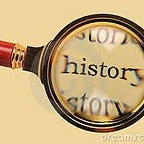Where does the word economy come from?
That vague word journalists and politicians love to raise, when things are worrisome and buoyant respectively.
It can be traced back to the Greek word oikonomia which is composed of oikos meaning “household” and nemein, which is best translated as “management and dispensation.” Thus, the cursory story usually goes, the term oikonomia referred to “household management,” and while this was loosely linked to the idea of budgeting, it has little connection to contemporary economics. Though it’s worth remembering that in ancient Greece, the “oikos” in oikonomia referred to a household not just in the sense of a family consumption unit, but more in the sense of an estate. An oikos was also a manufacturing unit that supplied many of its own needs and, in many cases, included slaves along with the nuclear family.
The word’s journey is long and oft-debated, but by the end of the 18th century, the term “political economy” had come to refer to what we now associate with economics — the social science concerned with the production, distribution, and consumption of goods and services. That definition will probably elicit an eye-roll and tempt you to stop reading this. Yes, economics isn’t an intriguing topic for most. But I think the unique situation we’re in now, where people are both largely homebound and economies are facing, in many cases, unprecedented hits, does pose a subtle irony to the word’s origin.
As millions across the world have lost their jobs, the media has printed clinical headlines about drops in GDP; the various charts and statistics, while intellectually engrossing to those interested in economics, do little to convey human hardship.
Sadly, many across the world have endured not only the pandemic but also natural disasters like hurricanes and wildfires. As one scientist astutely pointed out, “maybe, by talking just about things like sea surface temperature and tropical cyclone intensity and greenhouse gases and aerosols at these moments, scientists like me actually hinder the conversation we really should be having. That conversation is about climate, but first it’s about people.” He was referring to the role of climate change in these natural disasters. In fact, as the pandemic forced leaders everywhere to take a fresh look at building economies, the Covid crisis has increasingly been likened to that of climate change, and many have called for a “green recovery.”
The supposed conflict between ecology and economy is ironic because the words begin with a common root, eco. “logy” means “study of” and ecology translates to “the study of the home.”
Although ecology does have a scientific meaning, its literal translation is worth paying attention to at the moment. All the academic, intellectual problems about the economy and climate only matter because of the stories taking place in individual households. Those unable to pay rent, forced to evacuate and deal with loss.
Focusing on the eco in economies is the compass all leaders need to make the right decisions for us all, now more than ever.
